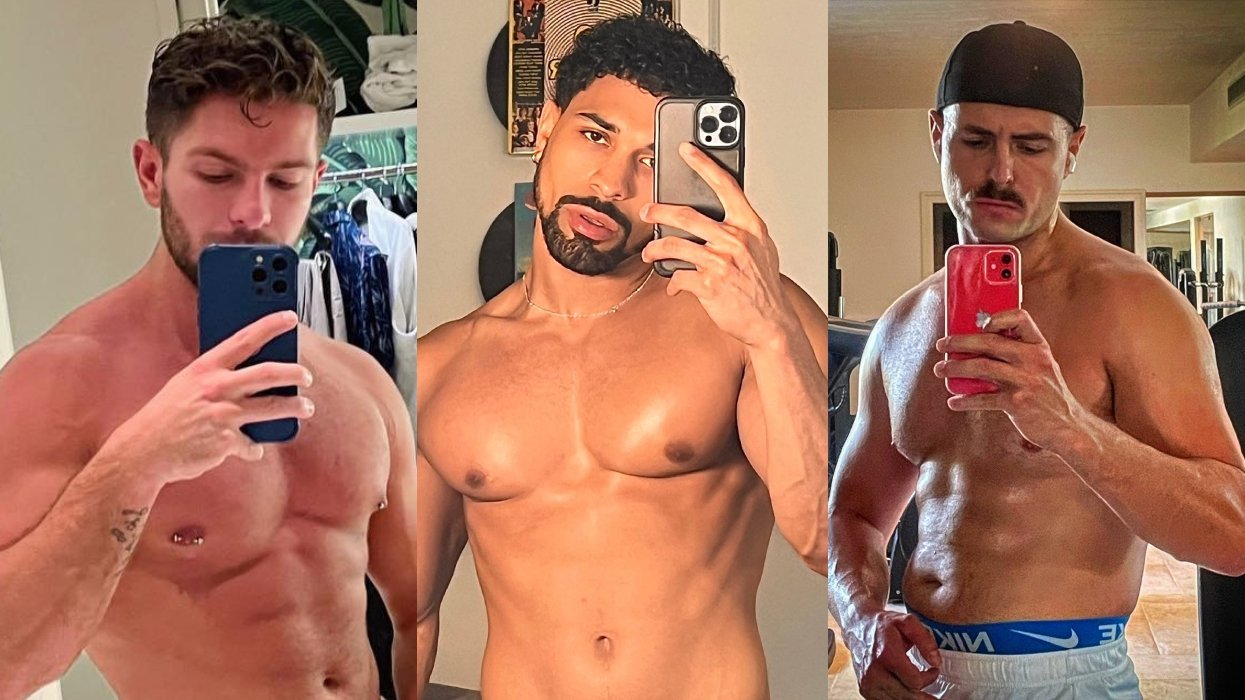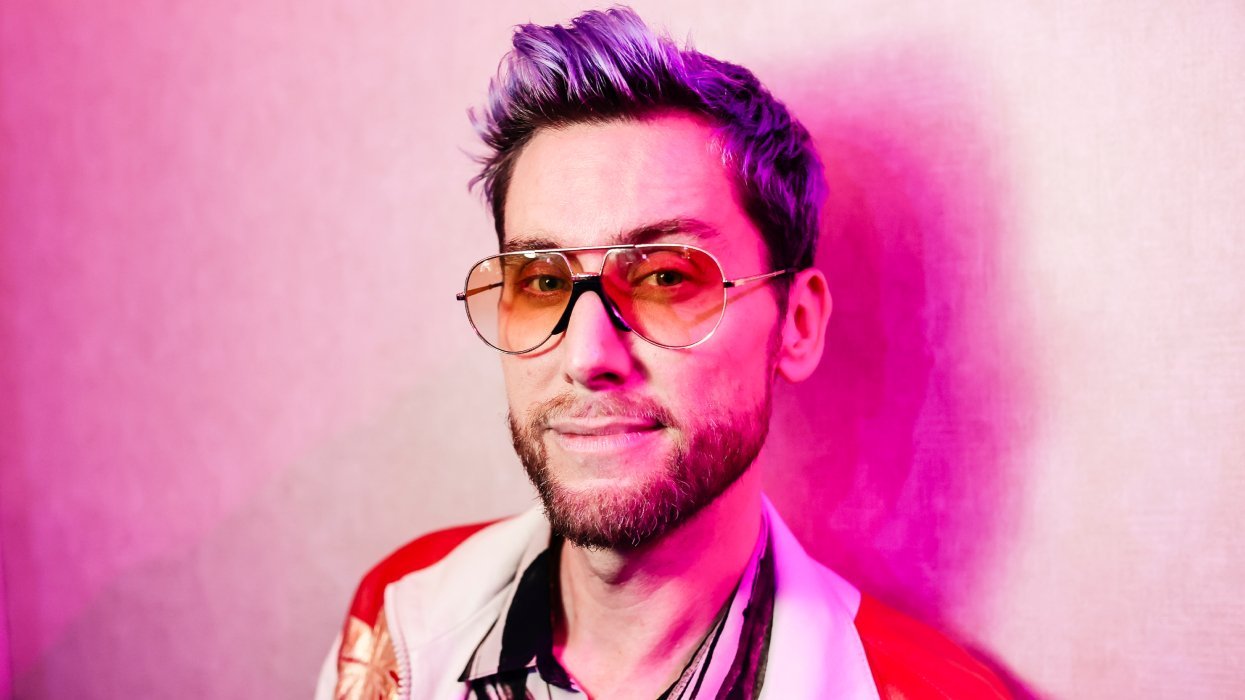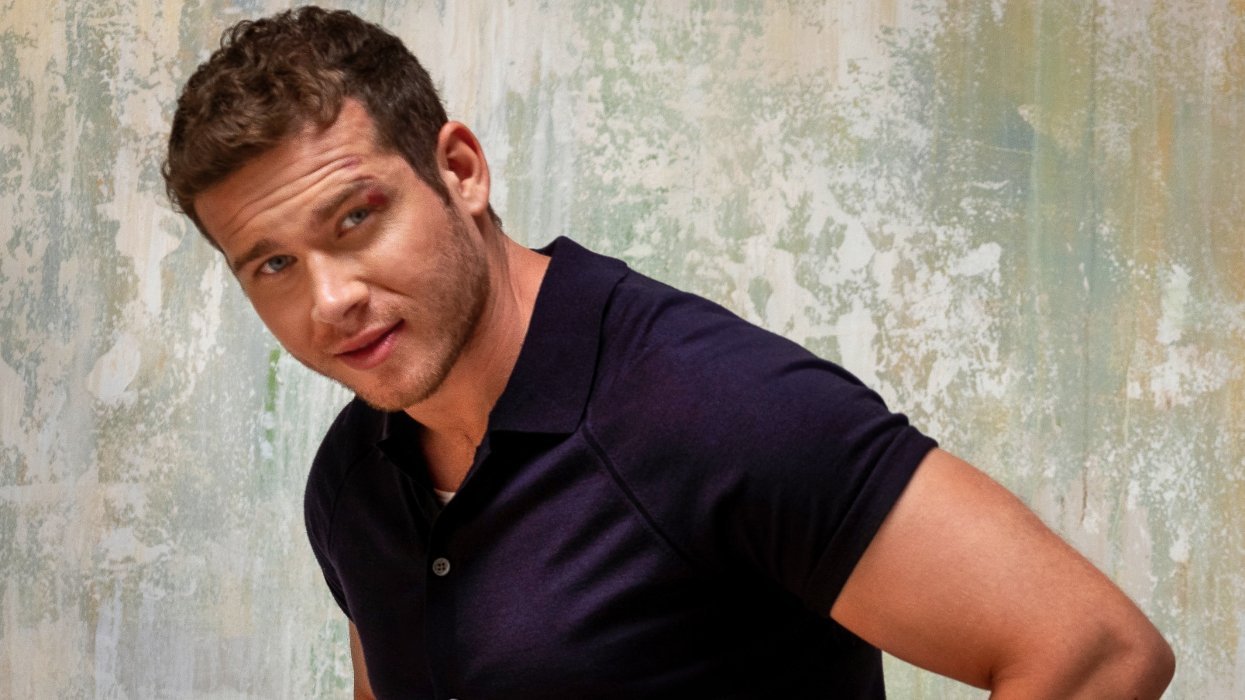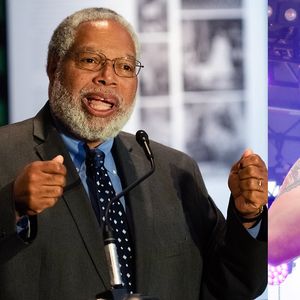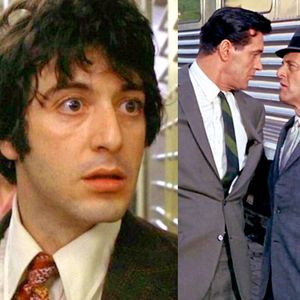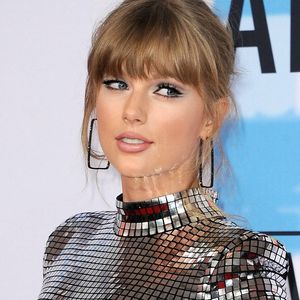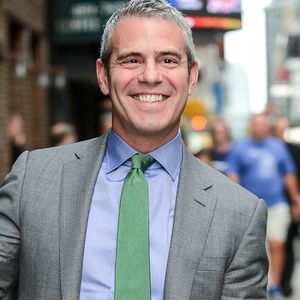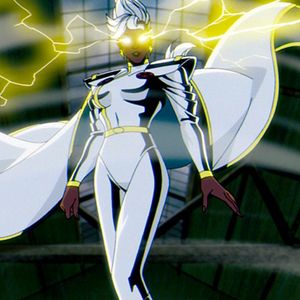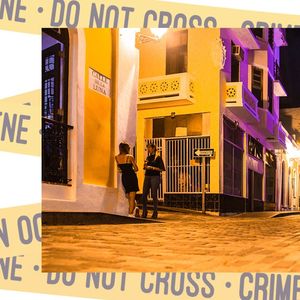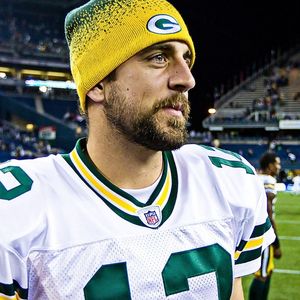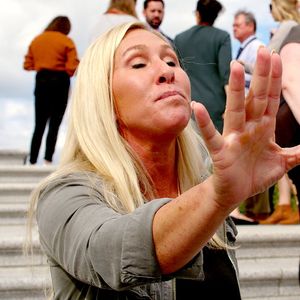It's been a decade since Patrick Wolf, the always soulful, often flamboyant, singer-songwriter burst onto the music scene. His first album, Lycanthropy, dazzled critics with its lyrical honesty, sonic complexity, and genre-bending variety (to watch a video we recorded with him from a few years back, click here). Ten-years on, the former busker from South London has stripped down 16 of his favorites and put out an acoustic double album, Sundark and Riverlight. We spoke with Wolf about his current world tour, what's behind his latest album, and where he sees this all going.
Out: So how's the tour been?
Patrick Wolf: It's been so much calmer than most of my tours. It's a lot smaller touring crew. It's really a lot more like four friends doing a road trip rather than this kind of huge production and it's making for more of an intimate energy on stage, a lot more relaxed and just totally about music.
Were you going for a more intimate feel for the tour and the album?
Yeah. Normally when I do an acoustic show, it's pretty much a one off thing in the midst of some really big, cool production shows. I always found that they were kind of my safe haven away from the lights and the drama of these two-hour long, quite physically demanding shows. So here I am doing a whole tour of it and it's something I've wanted to do.
Back before I released my first album, I used to busk on the streets with my accordion and I used to play at folk music bars and cafes. A lot of people were eating dinner and stuff and it was without any microphones and [the tour] reminds me a little bit of those days. It's gone full circle.
You don't use any electronic flourishes on the new album. Why is that?
The albums have been a kind of series of experimentations with different sounds. I was heavily into producing and programming dance music when I was a teenager. Then I fell in love with a different kind of music, music by Joni Mitchell and Lenny Cohen and the craft of singer-songwriting. But I do feel, honestly, that sometimes a song has been lost under tons of noise and production that I had been experimenting with at the time, so this is a real opportunity to expose what the songs really, at the end of the day, are made out of, as narratives. I think it's giving the songs "make-unders" in away and exposing what they're really about.
It's a double album. Does each disc have a distinct theme?
Yes. Sundark is an album that is a collection of songs that were written in loneliness and not really thinking about other people. It may be vaguely hedonistic and misanthropic and quite pessimistic, which has been me at times.
The second disc is more centered on enlightenment and joy. There are songs about relationships or involving other people. So there's isolation and solitude on one and togetherness on the second disc.
I didn't go into the studio with this concept. In a way, I took a bird's eye view on all my work, all the ninety-nine songs that I've written, and realized that they do fall into these two categories a lot of the time or they have done over the last ten years. It was the chance to categorize and document my work of the last ten years and hopefully move on as a writer and do something totally new.
Would you say the album's biographical?
Yeah, I'd say it's more of a self-portrait of me over the last ten years. It's not chronological, it's not in order, but I could tell you about every experience in every song. I haven't really written too much fiction in my work, so any completion I would make would be some form of a biography, because the songs are biographical.
When you're not writing for an album or preparing for a tour, what instrument do you like to play when you're fiddling about the house?
The harp has really always been a grounding instrument for me. It used to be the piano, but I've relearned the harp over the last three or four years. I used to play it when I was a teenager and relearning it has been equal to my journey of getting through to a more stable place and to being more in control of my emotions. It's been a therapeutic instrument to learn. It really does something to me and I could play it for hours on end--and I do sometimes.
Would you say as a compellation, Sundark and Riverlight is saying something?
I think my relationship with my audience and with the world is that when I do something that is a self-portrait it's not really for myself. I'm not really doing a self-portrait for myself; it's those personal bits of information that inspire other people. It becomes more of a public portrait. The songs that I have written over the period of time that I thought were the most biographical and the most idiosyncratic parts of my life and experience. Sometimes when I've written something I think, "how are people going to relate to this?" Actually those are the songs that people relate to most because they are extremely honest. So I think this album, yes, at one point was a personal project or document, ten years and my personal highlights. I know also how much the song "Paris" means to all the people I've got letters from who've said it's "saved their lives," or from "Bermondsey Street," I know what it was like playing in Russia to all young gay and lesbian kids in the crowd. In a way I was also choosing songs for the people I knew who would really really appreciate hearing them, now I'm twenty-nine.
How did you come up with the titles?
It was from when I was recording the song "London," and I rewrote the lyrics. There were two words that really stuck out. The song opens with the word "Sundark." Some times in London there's this feeling of threat and this feeling of constant lack of sun or when the sun comes and [London] is just a dark place anyway. "Riverlight" was at the end. It's the light that reflects off the river and the reflection. Those words really stuck with me. "Sundark"and "Riverlight"is almost like a signing off; it's almost like a goodbye. It was just two words stuck in my head for a month or two when I was making the album. The two albums needed names and Sundark seemed to be perfect for the misery and solipsism and Riverlight seemed to be perfect for a period of reflection but also hope and optimism.
But it takes me ages to choose album titles. That's one thing about making albums that I drive myself insane with. If I ever were to be a father, it would drive me insane what I was gonna call my child. I think names are very important. Sometimes the name becomes the album. You spend two years making an album and you change everybody's perception with one word.
Where do you see yourself going next?
I think about it quite a lot and at the moment I wanted to buy myself some time. I've always released an album every one-and-a-half to two years and that was always something I needed to do. My first album took about eight years of writing and I need a lot of time now to take a deep breath and think about how I feel about pop culture and what kind of artist I want to be. The great thrill is I could be absolutely anything. I really have no expectations for myself and put no limitations on what I can do, so I expect anything's really next for me because I've explored so many different things. I'm just so excited, I've got a real totally clean slate now and I've still got youth slightly on my side at twenty-nine. I really think in a way this is my graduation; I'm about to enter the real world now in terms of being an artist and a musician.
Sundark and Riverlight is out now.








